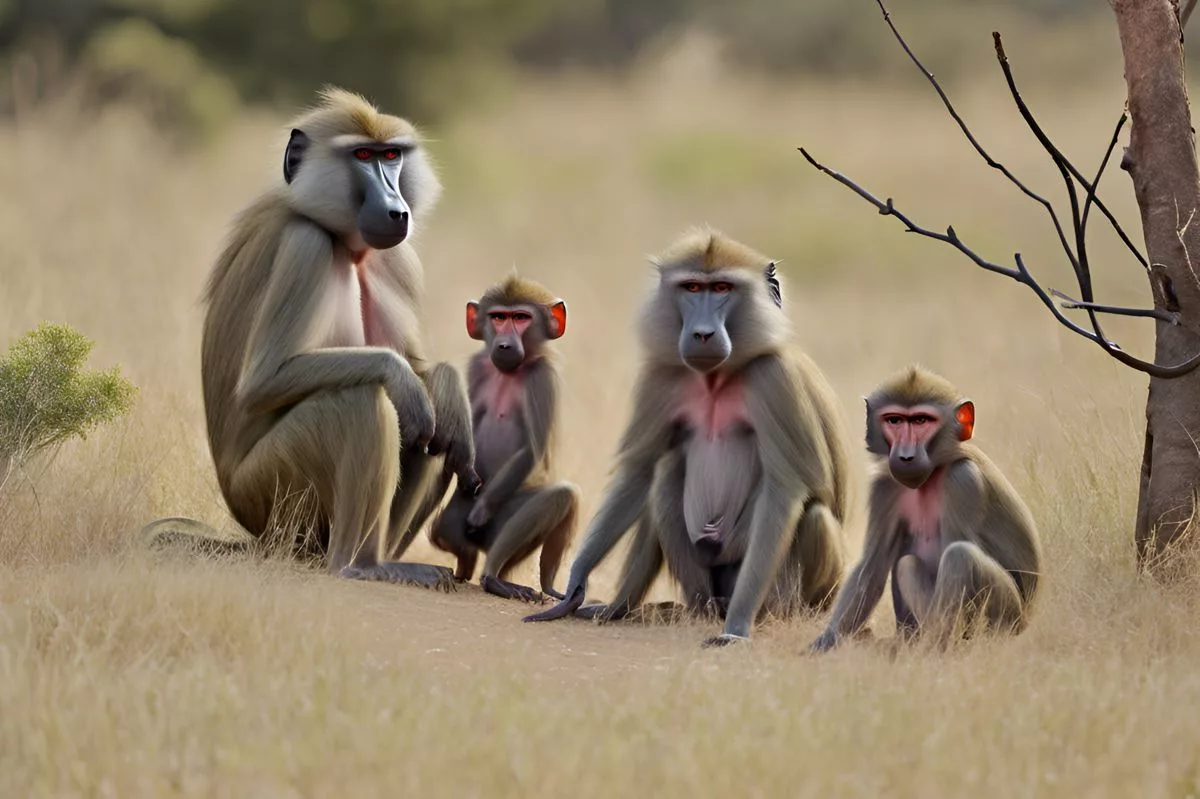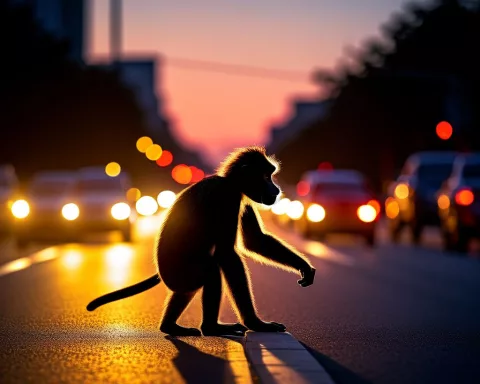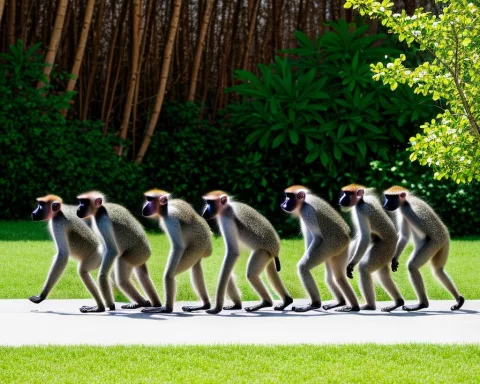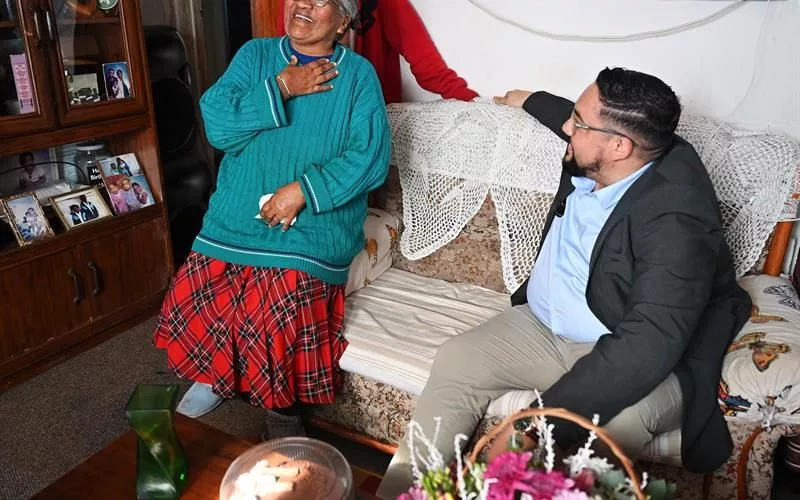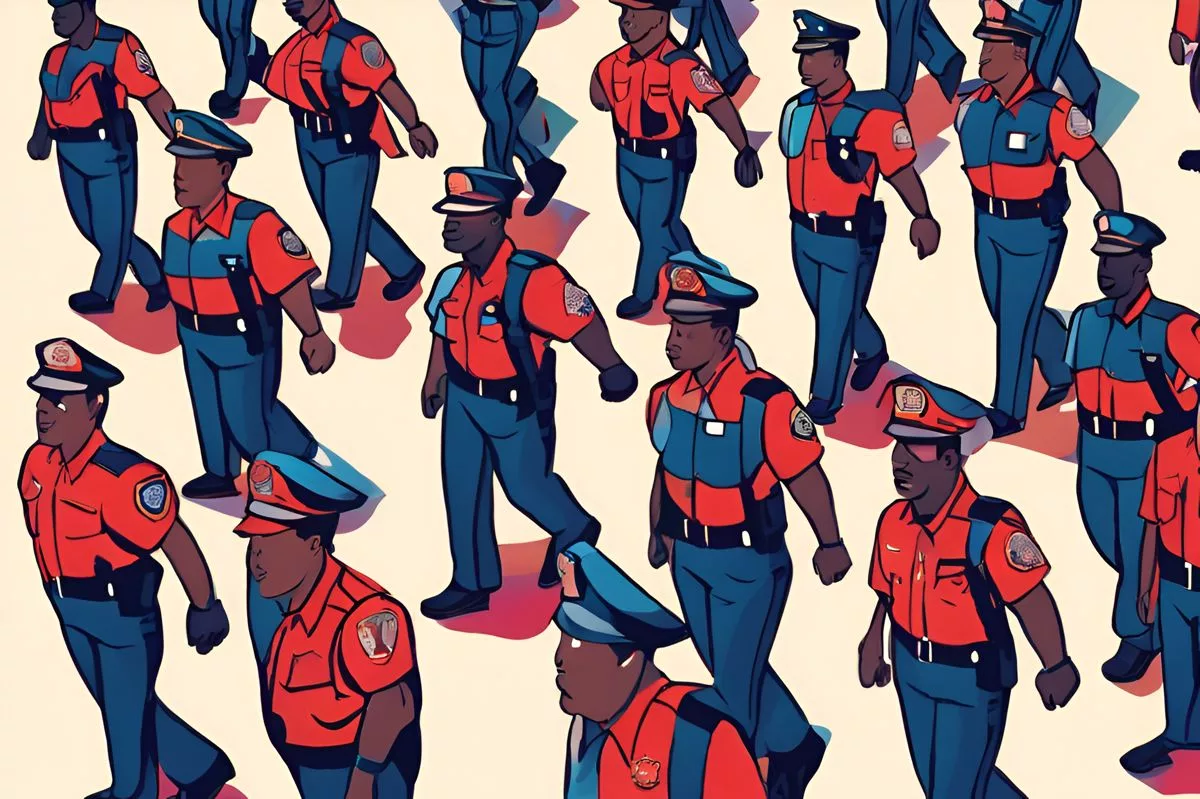For over ten years, there have been ongoing conflicts between humans and baboons in South Africa over sharing habitats. Baboon conservation organization Baboon Matters has taken legal action against various authorities due to their failure to implement strategies to resolve the conflict, putting both humans and baboons at risk. Specific demands include baboon-proof fences, bins, traffic calming measures, and insulation of electric power lines. The lack of collaboration among authorities has put the well-being of Cape Peninsula baboons at risk, causing suffering for both locals and baboons.
Unsettled Dispute Over the Cape Peninsula Baboons: A Ten-Year-Old Quandary
What is the Cape Peninsula baboon dispute?
The Cape Peninsula baboon dispute is an ongoing conflict between humans and baboons in South Africa over habitat sharing. Baboon conservation organization, Baboon Matters, has taken legal action against various authorities for failing to implement strategies intended to resolve the conflict, putting both humans and baboons at risk. Specific demands include baboon-proof fences, bins, traffic calming measures, and insulation of electric power lines.
The Baboons’ Dilemma
The predicament of the Cape Peninsula baboons is once more in the spotlight, as animal rights advocates turn to the Western Cape High Court for a resolution to a problem that has been ongoing for a decade. Baboon Matters, an organization dedicated to baboon conservation in South Africa, has responded to this ongoing and intensifying human-baboon dispute with legal action. The targets of their complaints are the various authorities involved, including the City of Cape Town, SANParks, Table Mountain National Park, the South African Navy, Western Cape Nature Conservation Board, and the Minister of Environmental Affairs.
Baboon Matters, along with other applicants such as activist Ryno Engelbrecht and Beauty Without Cruelty SA, expressed their worries via a Facebook post on May 3rd. They held these responsible authorities accountable for their negligence and failure to implement strategies intended to resolve this enduring conflict. Their notice of motion was filed at the Western Cape High Court on May 2nd, marking the start of a legal journey to find a solution to the dispute.
The Core Issue and Its Impact
The conflict revolves around the Cape Peninsula baboons, who share their habitat with humans in a landscape characterized by regular disputes among authorities over their responsibilities, directives, and budget application. Jenni Trethowan, the founder of Baboon Matters, has criticized the lack of collaboration among these authorities, attributing it to their failure to fulfil their legal responsibilities. Such disagreement has put the wellbeing of Cape Peninsula baboons at risk, causing suffering for both locals and baboons.
There is a general agreement that baboons should be flourishing in their natural environments rather than in human inhabited zones. However, the suggested mitigation measures, like decreasing attractants, enforcing bylaws, hiring trained rangers, and installing strategically placed baboon-proof electric fences, have not been fully implemented. Trethowan expressed her frustration, stating, “All of this has been researched and agreed on for more than 23 years, and has only been partially implemented, if at all.”
Proposed Interventions and Consequence of Inaction
The advocates have made specific demands, including baboon-proof fences, suitably baboon-proof bins, traffic calming measures, and insulation of electric power lines. They maintain that these requirements should be met without additional costs to the residents. They also advocated for the continuation of the Urban Baboon Programme, which is currently scheduled to end on December 31, 2024.
The areas affected by this dispute include Simon’s Town, Welcome Glen, Da Gama Park, Seaforth, Kommetjie, Scarborough, Ocean View, Misty Cliffs, Tokai, Zwaanswyk, Constantia, and Cape Point. The ongoing conflict has allegedly led to the mistreatment, criminalization, harm, and death of baboons, along with property damage suffered by residents.
Trethowan asserts that the authorities’ inaction has aggravated the conflict. She warned, “If the solutions are not implemented, we can expect the conflict situation to continue with an even higher death rate of the baboons and increasing damage to property and frustration from residents.”
Outcome of the Case
The Cape Peninsula Baboon Management Joint Task Team, composed of SANParks, Cape Nature, and the City, has promised to answer the allegations in court. However, it remains uncertain whether this legal course will instigate the necessary change.
What specific demands have been made by Baboon Matters to resolve the conflict between humans and baboons in South Africa?
Baboon Matters has demanded baboon-proof fences, suitably baboon-proof bins, traffic calming measures, and insulation of electric power lines to resolve the conflict between humans and baboons in South Africa.
What is the impact of the dispute on the wellbeing of Cape Peninsula baboons and locals?
The dispute has put the wellbeing of Cape Peninsula baboons at risk, causing suffering for both locals and baboons. The mistreatment, criminalization, harm, and death of baboons, along with property damage suffered by residents, have been reported.
What interventions have been proposed to resolve the conflict?
Decreasing attractants, enforcing bylaws, hiring trained rangers, and installing strategically placed baboon-proof electric fences have been proposed as interventions to resolve the conflict.
What is the Baboons’ Dilemma?
The Baboons’ Dilemma refers to the ongoing human-baboon dispute in South Africa, which has been ongoing for a decade. Baboon conservation organization Baboon Matters has taken legal action against various authorities for failing to implement strategies intended to resolve the conflict.
What is the outcome of the case?
The Cape Peninsula Baboon Management Joint Task Team, composed of SANParks, Cape Nature, and the City, has promised to answer the allegations in court. However, it remains uncertain whether this legal course will instigate the necessary change.
What areas are affected by the dispute?
Simon’s Town, Welcome Glen, Da Gama Park, Seaforth, Kommetjie, Scarborough, Ocean View, Misty Cliffs, Tokai, Zwaanswyk, Constantia, and Cape Point are the areas affected by the dispute between humans and baboons in South Africa.

